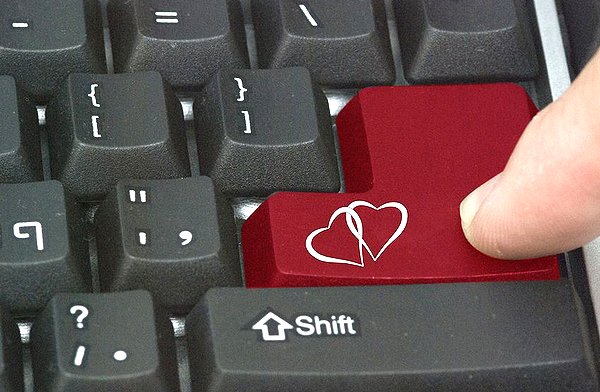Online dating has become a cultural phenomenon as millions of users flock to access the names and profiles of potential companions. But the promise of blissful happiness comes with a host of privacy and security threats.
Your private parts please.
In the hope of attracting romantic interest, customers disclose sensitive personal information about themselves. When you sign up for an online dating service, you create a “profile” of yourself that others can browse. Depending upon the site, you may be asked to reveal your age, sex, education, profession, number of children, religion, geographic location, sexual proclivities, drinking behavior, hobbies, income, religion, ethnicity, drug use, where you live, where you work, and the places you go.
Misrepresentation or outright lying are always a concern. Studies have shown that 80% of profiles have inaccuracies (keep in mind that the average American female weighs 163 pounds, and at 3.5 inches, the average man’s flaccid penis barely beats a gherkin). Of course, nobody enjoys being reeled in like a catfish, but at least the possibility of meeting face-to-face tends to suppress wild exaggerations … Nevertheless, worry about your ego getting fried isn’t what you should be losing sleep over.
Heartbreak hotel.
After creating a profile, some of you will end up in a relationship. Good for you—1 in 4 online daters say they’ve met a spouse or long-term mate through websites or apps. More commonly, however, you’ll abandon the site after a while and maybe delete the app. Many will retain their profile so they can get back in the game later and avoid the hassle of filling in all those fields again. Rest assured, your information remains alive and well—and available to anyone who knows how to access it. And that can come back to haunt you.
Online dating, possibly because it speaks to our fondest hopes, makes us vulnerable to a panoply of scammers, predators, psychos, and stalkers. Although most of us shake our heads at people’s gullibility, in fact it’s all too easy to fall victim, especially if we are actively looking for a meaningful relationship through the Internet. But exposure to criminal activity while trolling for tuna isn’t the only risk encountered on these sites.
Privacy ain’t so private.
In addition to being shared with prospective dates, your data may also be re-disclosed to advertisers and data aggregators who use it for purposes unrelated to online dating and without your consent. Consider how your reputation might suffer should an employer, insurer, or offline friends and family inadvertently discover your dating profile. For example, learning that you are LGBT or HIV-positive could have devastating personal consequences. Furthermore, most dating sites will turn over your data if they get a court order. Do you want your insurance company, a divorce lawyer, or a member of law enforcement combing through your profile, looking for signs of misrepresentation?
Those profile photos at the beach? If you took them with a camera or cell phone containing a Global Positioning System (GPS) chip, they can provide coordinates that show exactly where the photo was taken. Although most dating website scrub this metadata, a research study at University of Colorado Boulder’s Leeds School of Business (2011) found 21 of 90 dating websites did not properly remove location data from photos uploaded by their users.
In addition, photos are often stored in a “content delivery network,” a collection of databases not owned by the dating service. This means that even if you delete a photo from the dating website, there remains a cache of photos maintained by another company that will not be deleted. “Data that is posted on the Internet should be regarded as permanent after 20 minutes, even if the originator has deleted the file,” says the former head of cyber security with Microsoft. As Dr. Laura learned, “Google never forgets.”
Valentine’s Day is coming. So what’s a lonely young person to do? Being “privacy aware” is a good start. One good source regarding online dating and privacy is Factsheet 37: The Perils and Pitfalls of Online Dating: How to Protect Yourself by Privacy Rights Clearinghouse (2014). Stick to dating websites with nationally known reputations, and never send money via a wire transfer service to someone you meet online.
I think young people don’t seem to care about their privacy. They’re prepared to let it all hang out.
~ Alan Dershowitz, Constitutional law scholar
Learn more about this, and other interesting topics, in the Young Person’s Guide to Wisdom, Power, and Life Success.
Image credit: “Stock Photo” by marigranula, licensed from 123rf.com (2014).





















